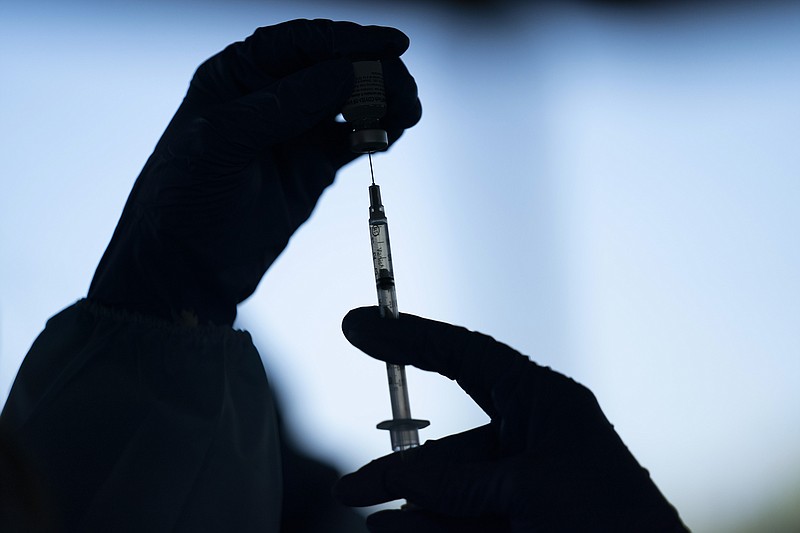The Biden administration, less than a week old, is learning what the former Trump administration said for a year - that there are no rules for a global pandemic, that things change as new information is gleaned, and that predicting exactly what will happen in the future about the virus is a fool's game.
As such, mixed messages emerged from the White House over the weekend, with President Joe Biden on Friday saying "there's nothing we can do to change the trajectory of the pandemic in the next several months" and Department of Health and Human Services (HHS) secretary nominee Xavier Becerra cleaning up the doom and gloom on a CNN show Sunday by saying progress was possible if people work together but would not be "overnight."
One can imagine how former President Donald Trump would have been savaged by the left, by the media and by the American people if he had told the nation "there's nothing we can do to change the trajectory of the pandemic."
Indeed, he said last year that's why he didn't say anything initially about the threat of the virus, even as his administration went to work on it, in order not to panic the country.
Biden, of course, must put the worst face on every situation to get the most action. It's not solely about the coronavirus, which we're sure he'd like the country to be rid of as soon as possible, but about money for other liberal schemes his administration wants to enact.
The more he can get done early, when people want to see action on issues surrounding the virus, the less he'll have to worry about later when people begin thinking about the cost of various steps he wants to take.
But to our original point, with a pandemic that has no playbook, things are always changing, no matter who is president.
For example, one thing we all got straight pretty quickly once the Pfizer and Moderna vaccines began to be distributed was that you definitely didn't mix the two. You didn't get a Pfizer vaccine on your first round and a Moderna shot for your second inoculation.
It made sense in the way mechanics tell you not to mix tires with different tread patterns, internal constructions or sizes on your car.
But, wait. This just in.
Late last week, the Centers for Disease Control and Prevention (CDC) quietly updated its recommendations to say that individuals may switch vaccines in "exceptional situations." Only the situations didn't seem all that exceptional. They included when the vaccine variety given in the first dose "cannot be determined or is not longer available."
We easily can imagine, say, a health department - simply due to logistics - running out of one vaccine variety but having plenty of another one. Does it wait longer than the prescribed period to deliver that second dose or does it use the vaccine that is available?
And as to the prescribed period between doses? Well, the CDC has quietly changed that too, from three or four weeks (depending on the vaccine) to six weeks.
Despite the updates, CDC guidance still says the authorized vaccines are "not interchangeable with each other" and notes that the safety and efficacy of mixing the two has not been studied.
So, from the disease for which federal health agencies once predicted 2.2 million U.S. deaths and for which those same health officials once said masks weren't effective comes another conundrum.
Stay tuned.
Until the supply meets the demand, the process is not likely to be smooth.
Of course, members of the Biden team have criticized the former Trump administration for every aspect of the vaccine rollout without knowing what is involved. Slowly but surely, they're finding out, and some were quoted over the weekend as grumbling over the speed at which things now under their watch take place.
They also will learn that attempting to shoehorn every state and every community into a one-size-fits-all vaccine plan is fraught with peril. New York is not like California, which is not like Florida, which is not like North Dakota, which is not like Tennessee. Getting the country vaccinated is not as simple as a new administration taking office.
Once a little time goes by, HHS nominee Becerra may understand the folly of making the kind of arrogant statement he did Sunday.
"Once we're in, in the house, taking care of business," he said, "we'll be able to give more precision" when the virus can be tamed.
In time, Becerra is likely to learn that's easier said than done.
